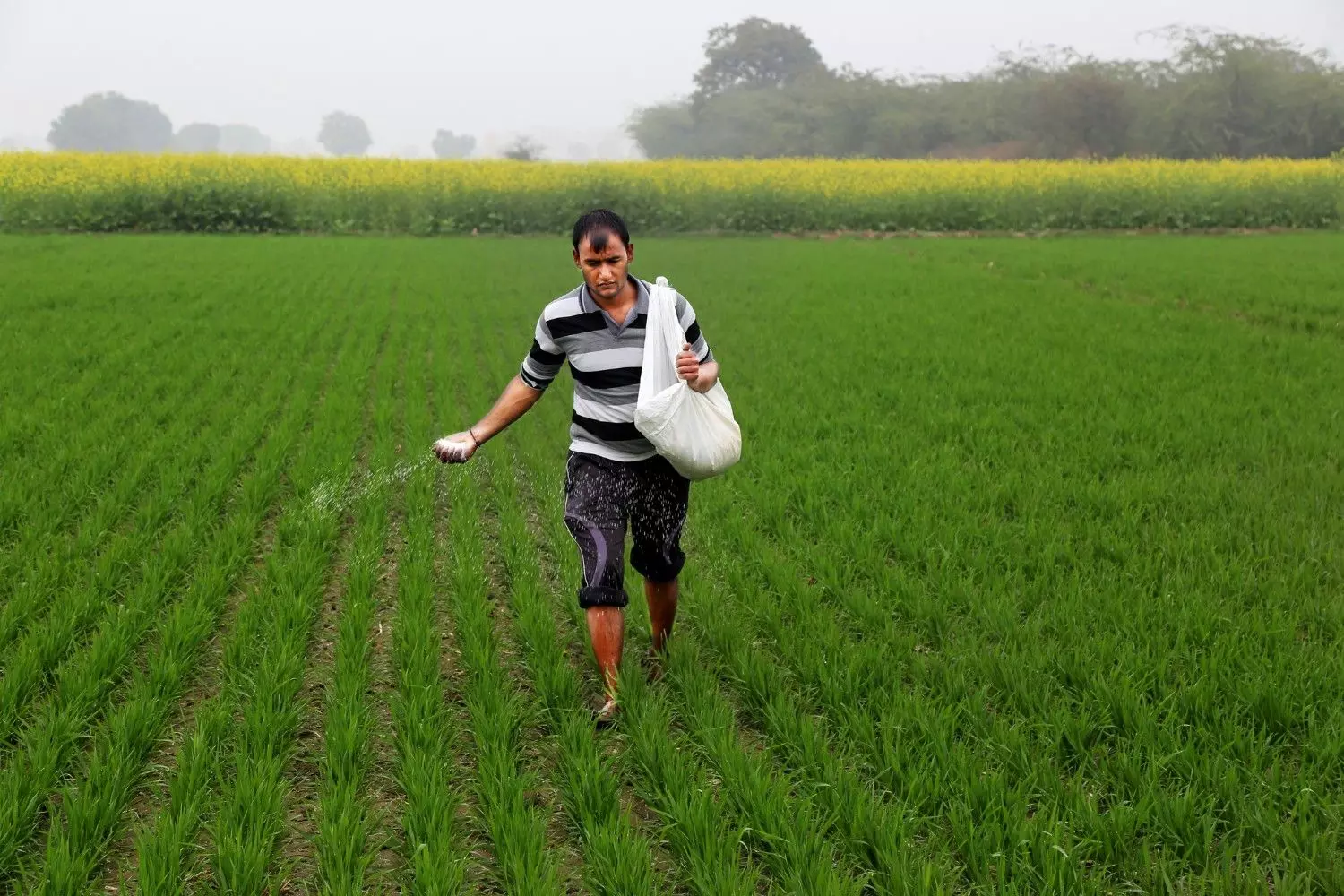
Farmers feel the pinch after China halts specialty fertilisers export to India
India gets about 80 per cent of these chemicals' supply from China

After imposing restrictions on exporting rare earth magnets to India, China has halted exports of specialty fertilisers to the country over the past two months, senior executives at major importing firms said, according to a report on Thursday (June 26).
China’s move to stop exports of specialty fertilisers could affect farmers and India’s agricultural supply chain as specialty fertilisers are used to increase the yields of fruits, vegetables and other remunerative crops. India imports about 80 per cent of its supplies of these chemicals from China, according to a report in Economic Times.
Also read: Why fertilisers have emerged as a big enemy of farmers in Andhra Pradesh
China, however, is continuing to export specialty fertilisers to other countries.
What experts say
“China has been restricting suppliers of specialty fertilisers to India for the last four to five years. However, this time it is a complete halt,” Rajib Chakraborty, president, Soluble Fertilizer Industry Association (SFIA) was quoted as saying in the report.
An official of a multinational fertiliser company said India should look at alternative countries for imports of specialty fertilisers, but added that getting the chemicals to arrive in time was a challenge. “While alternative destinations such as Jordan and Europe can be explored, the challenge is to land these chemicals in time,” the official said, as per the report.
Also read: Govt unveils first genome-edited rice varieties; yield may rise by 30 pc
Citing sources, the report said that Chinese officials are avoiding inspection of India-bound consignments, effectively blocking exports through procedural means rather than an explicit prohibition. All factory shipments are required to be inspected by Chinese authorities.
India’s specialty fertilisers requirement
As per industry data, India imports 150,000-160,000 tonnes of specialty fertilisers during the June-December period.
In India, the market for micronutrient fertilisers was valued at $571.6 million in 2022, which is expected to reach to $1057.6 million by 2029, registering a compound annual growth rate (CAGR) of 9.19 per cent, according to The Fertilizer Association of India (FAI).
The Indian biostimulants market size was valued at $266.58 million in 2022. The market is expected to grow to $734.13 million by 2029, exhibiting a CAGR of 15.57 per cent during the forecast period. Similarly, the organic fertiliser market was valued at $541.8 million in 2021 and predicted to increase to $1.13 billion by 2032, showing CAGR of 7 per cent, FAI said.
What are specialty fertilisers?
According to FAI, specialty and micronutrient fertilisers include an array of products ranging from water soluble fertilisers (WSFs) and liquid fertilisers for foliar and fertigation, controlled release fertilisers (CRFs), slow release fertilisers (SRFs), micronutrient fertilisers, fortified fertilisers, customised fertilisers, nano fertilisers, bio-stimulants, organic and other value-added and innovative fertilisers.
These fertilisers bring additional benefits to growers by way of enhancing nutrient availability, slowing down bacterial activity, and meeting exact nutrient needs of the crop. The specialty fertilisers are developed through sustained experimentation to suit matrix of soil fertility status, type of crop, and availability of water under specific climatic conditions. The application schedule for these fertilisers is also developed taking into account the crop growth stage and also physical, chemical and biological properties of the soil, FAI said.
Data on imports from China
As per government data, India imported 8.47 lakh tonnes of di-ammonium phosphate (DAP) fertiliser from China till February in the current fiscal year.
The Chinese imports represent 19.17 per cent of India’s total DAP imports of 44.19 lakh tonnes during the period.
In the previous fiscal year, China accounted for 22.28 lakh tonnes, or about 40 per cent, of India's overall DAP imports of 55.67 lakh tonnes.
DAP is the second most widely used fertiliser in India after urea. The country also imports DAP from Russia, Saudi Arabia, Morocco, and Jordan, both as finished fertiliser and raw materials such as rock phosphate and intermediate chemicals.

